The Non-Profit Funding page provides a comprehensive list of the non-profit organizations that receive support and protection from the City of Las Cruces. Here, you can explore detailed information about each organization, including their mission, services, and the critical roles they play in our community. Our commitment to transparency and support ensures that residents can easily identify and connect with these vital organizations. By showcasing the diverse array of non-profits we protect, we aim to highlight their contributions and foster a collaborative, thriving community. Explore this page to learn more about the non-profits making a difference in Las Cruces.
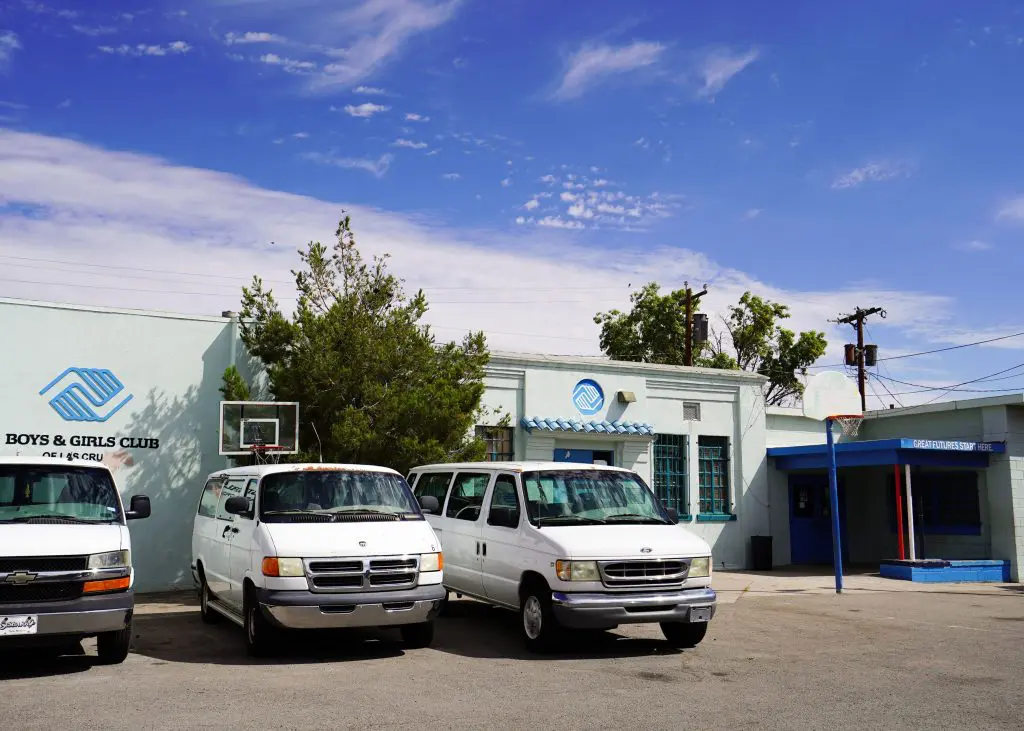
Project Summary
The Boys and Girls Club of Las Cruces (BGCLC) will utilize ARPA funding to pay for preliminary engineering, design, and a portion of construction costs for a new state-of-the-art facility. This new facility will triple the capacity to 250 Las Cruces youth served daily.
During the project, BGCLC will:
- Work with local non-profit partners and the City of Las Cruces to maximize their space and create multiple opportunities for partnerships that seek to avoid duplication of services to Las Cruces residents.
- Ensure that the facility be approximately 30,000 square feet, including a gymnasium, state-of-the-art STEM Lab, and a separate wing for adolescent age-appropriate activities.
- Work with the City of Las Cruces Parks and Recreation Department and other community entities to allow after-hours usage of the gymnasium and other Club amenities.
Goals
Complete 100% of preliminary engineering, design, and other preliminary construction for a state-of-the-art facility that will increase the future capacity of BGCLC to serve Las Cruces youth in need.
Milestones
- BGCLC will identify an existing facility and/or land to renovate or build the new facility with a goal of being under contract no later than January 15, 2023. (Please note an existing facility has been identified, an offer has been made, and the contract will most likely be signed by December 31, 2022).
- BGCLC will undergo preliminary inspections, surveys, etc., by February 15, 2023.
- BGCLC will continue the feasibility study, which was paused until the land was identified. Feasibility study to be complete by March 31, 2023.
Outcomes
Completion of preliminary engineering, design, and a portion of construction, studies, and assessments for environmental work.
Rationale for the Project
An increase in youth placed on waiting lists to receive services, exacerbated during COVID-19 due to capacity restrictions and school closures, made the need for a larger facility more relevant. Moreover, the building in which BGCLC has been housed since 1965, needs frequent, costly repairs, and its lack of infrastructure makes it challenging to provide youth technology and tools since it is beyond the state of good repair.
Project Summary
New Mexico Housing & Community Development Corporation will build Peachtree Canyon, a 144-unit affordable housing community located within the Metro Verde South Subdivision of Las Cruces, New Mexico. This development will address the significant gap between the supply and demand for affordable rental housing units. The project will primarily serve a demographic of working family households with children with incomes at or below 60% Area Median Income (AMI).
Goals
The Peachtree Canyon project goal is to increase the supply of affordable housing in Las Cruces to meet the critically low supply of affordable options within the community.
Milestones
- 2023 1st Quarter – Submit NM MFA 4% Bond Application
- 2023 2nd Quarter – Project architect begins construction plans
- 2023 End 3rd Quarter – Construction plans complete, apply for building permit
- 2023 4th Quarter – Commence closing process with tax credit partner, construction lender, purchase a development site
- 2024 January – Begin construction phase
- 2025 July – Construction complete
Outcomes
Completed construction of 144 affordable units and provided housing to 144 families with incomes at or below 60% AMI.
Rationale for the Project
New Mexico Mortgage Finance Authority’s 2020 Housing Needs Assessment for Las Cruces identified the need for more than 5,000 additional affordable housing units as demand far outpaces the supply of affordable units within the community. Furthermore, the lack of stable housing is associated with many community problems, including crime, poor health, and poor educational outcomes. Decent, safe, affordable housing is essential to families and fulfills a basic human need for shelter, but it also contributes to well-being of both parents and children. Studies show that children in stable housing do better in school and are less likely to experience disruption in their education due to unwanted moves. Quality, affordable housing reduces stress, toxins, and infectious disease, improving physical and mental health. Affordable housing also frees up funds within families’ tight budgets to spend on health care and food. Upon completion, Peachtree Canyon will construct 144 affordable rental units, primarily serving a demographic of working family households with children whose incomes are at or below 60% AMI.

Project Summary
Mesilla Valley Public Housing Authority’s (MVPHA) Oak Street Apartments Rehabilitation project will support moderate rehabilitation of a housing complex needing repairs, primarily occupied by Veterans Assistance Supportive Housing (VASH) recipients and individuals/families earning below 50% of the area medium income (AMI). Renovations will include repairing/replacing concrete walkways/stairs, resurfacing the parking lot, painting the building, adding exterior lighting, and remodeling kitchens and bathrooms.
Goals
- Reduce homelessness, particularly among Veterans.
- Support affordable, accessible rental housing.
- Preserve existing affordable housing.
Milestones
- January 2023 – Contractor RFP
- February 2023 – Permits Received
- February 2023 – Construction Start
- November 2023 – Construction Completed
Outcomes
Provide 22 active duty or retired United States military Veterans and households earning below 50% of the area AMI with rehabilitated and affordable housing.
Rationale for the Project
Since 1976, the Oak Street Apartment’s original property, located in Las Cruces, New Mexico, has not been renovated and needs repairs. Most of its tenants are U.S. military Veterans or individuals/families earning below 50% of the AMI. Mesilla Valley Community of Hope, a non-profit assisting homeless populations, provides tenants with on-site case management, cost-free transportation, and nutrition support services. The goal is to complete a moderate rehabilitation that will enable MVPHA to continue to provide safe, decent, affordable housing to lower-income veterans and households in the community.
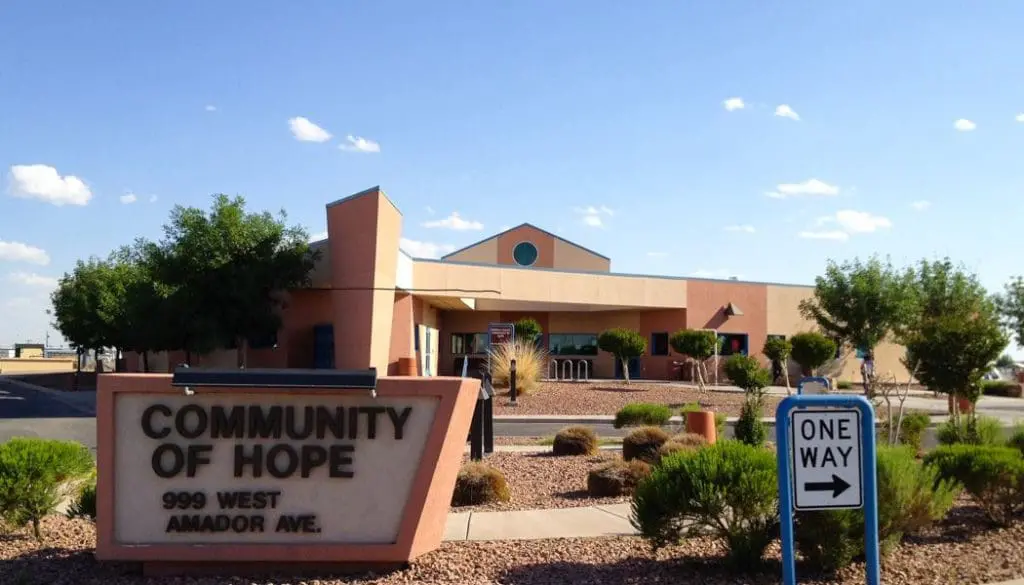
Project Summary
The Housing Risk Mitigation Fund will support Mesilla Valley Community of Hope’s (MVCH) efforts as a homeless assistance provider to recruit and retain landlords to work with and house clients presenting potential challenges to remaining housed due to complicated rental histories, Fair Market Rent barriers, or other housing and voucher rental concerns. This is a pilot project further expand the use of housing risk mitigation funds.
Goals
- Recruit and retain landlords to affordably house underserved populations (e.g., people who were formerly homeless or transitions from homelessness).
- Keep apartments occupied, stimulating the economy.
- Increase the well-being and housing stability of people experiencing homelessness.
Milestones
Each year MVCH will bring in 3 new landlords. 25 people in the first year will exit to permanent housing.
Outcomes
- 10 landlords added as affordable housing partners due to incentives.
- Assisted and housed 100 individuals experiencing homelessness or transition from homelessness.
- 75 exited permanent housing through this program/fund.
Rationale for the Project
During the pandemic, many people lost access to safe and affordable housing due to the loss of income related to COVID-19. During that time, MVCH saw a significant reduction in units that met Fair Market Rent, which added a barrier to rapidly housing people. MVCH housed over 1,050 people, helping to reduce of COVID and keep people quarantined. Its staff saw increased client mental health issues due to the closures of many supportive services during the pandemic, which had previously helped increase their housing stability. Using Housing Risk Mitigation Funds, MVCH will improve landlord/tenant relationships, keep people housed, and increase the housing stock available for people transitioning from homelessness.
Project Summary
To relieve a portion of pandemic-related challenges. LiftFund’s Revitalize Las Cruces Small Businesses program will allow macro and small business owners to apply for capital through a grant process. Funds awarded will depend on the reduction in gross sales experienced by the businesses during the pandemic.
Grants will range from $10,000 to $25,000 to eligible micro and small businesses. Funds must be used for business-related expenses, including payroll, working capital, business rent, inventory, supplies, equipment, and other operating costs.
- Applicants are only eligible to receive one grant award;
- Only one grant may be awarded per business with more than one location; and
- Limited to one grant per physical address within City of Las Cruces.
Business qualifications include:
- Annual gross revenues of more than $10,000 but not more than $3 million;
- Located in the City of Las Cruces, as indicated by a City-approved boundary map; (City to provide a shape file of city boundaries);
- Experienced negative impact on operations due to the pandemic;
- In operation before January 1, 2020 with documented financials in 2019;
- Currently operating;
- Be in good standing with New Mexico Secretary of State’s Office, if applicable.
Prohibited industries are: non-profits, sexually-oriented, gambling, payday lenders, and real estate investment. Prohibited industries will be identified by their NAICS code. Franchises are allowed.
Goals
Relieve the Las Cruces business community from COVID-19-induced financial loss.
Milestones
May 15, 2023 – Program funds + 1/2 administrative fee released from City to LiftFund.
June 30, 2023 – First applicant Analysis Report submitted to City. Weekly pipeline reports submitted until program concludes.
August 25, 2023 – 1/2 Administrative Fee Payment due from City to LiftFund.
Outcomes
Develop a promotional plan that educates potential applicants about the opportunity, as follows:
- Create a free, publicly accessible webpage for the grant program with access to the grant application and listing of the grant criteria and information, available in English and Spanish.
- Two (2) informational sessions with live translation into Spanish during the application period.
- Press release prior to the application period.
- Social media promotion on LiftFund networks prior to and during the application period.
- E-blast to LiftFund clients with businesses located in the City.
- Provide direct assistance and/or partner with organizations that can provide assistance to applicants that do not have capacity to complete an online or paper grant application or secure required documentation.
Award grants to eligible businesses.
Rationale for the Project
Las Cruces businesses struggled with the challenges brought on by the COVID-19 pandemic. This project will provide loans to some of the hardest-hit macro and small businesses through grant funding.
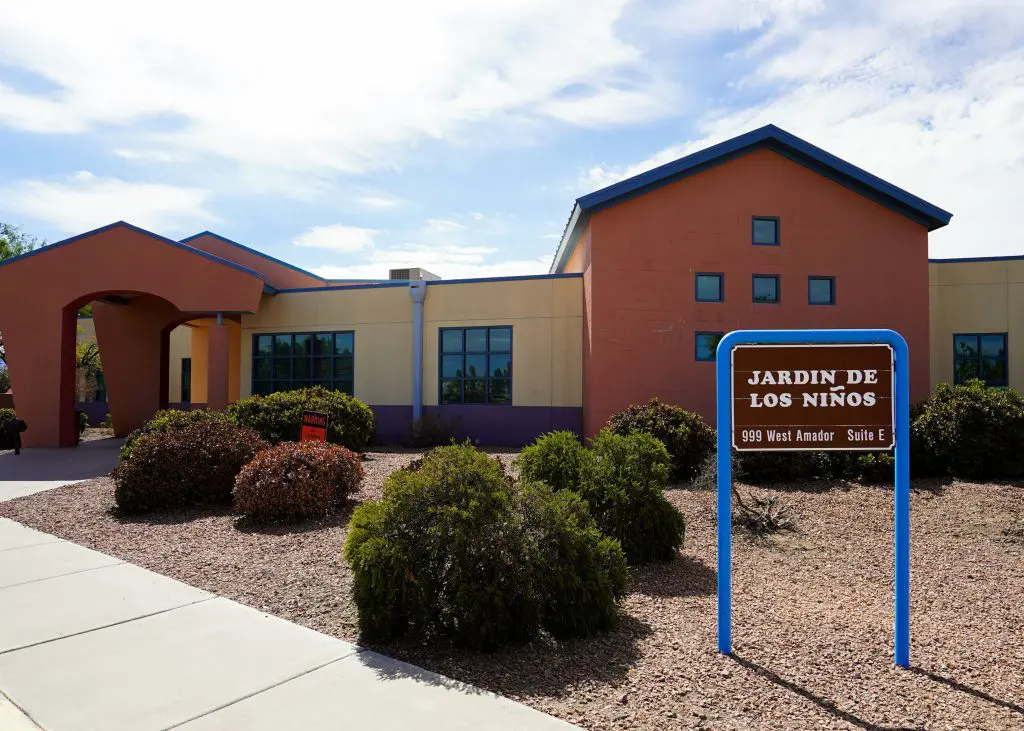
Project Summary
Jardin de Los Niños’ Flourishing Families Infant Mental Health Program’s holistic, strengths-based service delivery model will address trauma for high-risk families who experience generational poverty, trauma, domestic violence, food insecurity, and high mobility. Homeless children and families who experience trauma are unlikely to have their basic social/emotional, and healthcare needs met. Through the Flourishing Families Infant Mental Health Program model, children and families will receive direct therapy services and social/emotional learning support. Parents will also participate in a trauma-informed mentoring program.
Goals
The Flourishing Families Infant Mental Health Program aims to 1) advance the health, safety, and well-being of homeless/near homeless and abused/neglected children and 2) strengthen and stabilize the family to quickly minimize the ill effects of homelessness on children.
Outcomes
200 youth received mental health services. Family members also received mental health services and were connected to wrap-around services that minimized the impact of homelessness or near-homelessness.
Rationale for the Project
New Mexico and Doña Ana County continue to experience a rise in homelessness. According to the 2020 Kids Count Report, 26% of children living in New Mexico live in poverty, as opposed to 18% nationwide. In Doña Ana County, 43% of children 0-4 live in poverty compared to 28% in New Mexico. In addition, 42% of Doña Ana County children live in high-poverty areas as opposed to 19.7% in New Mexico. Overall, New Mexico ranks 50th for overall child well-being in education, health, family, and community development, according the 2020 Kids Count Report. Homeless children are at a higher risk of abuse, neglect, poor health, hunger, chaos, and trauma.
Children and families experiencing homelessness experience social issues such as food insecurity, low literacy skills, developmental delays, lack of access to medical and behavioral health care, high mobility, domestic violence, and child neglect. COVID-19 quarantines placed victims of domestic violence and their children at a greater risk. The child abuse rate (the number of substantiated child victims of abuse or neglect per 1,000 children) was approximately 15 in every 1,000 children under 18 (Kids Count, 2020). One in ten homeless youth misses more than a month of school annually, has lower math scores, and enters the juvenile justice system by the age of eight, one in three has a significant mental health disorder. Children who are homeless or near homeless have a higher risk of experiencing abuse and neglect (Voices for Children, 2018). Jardin de Los Niños serves children and families that are homeless or near homeless
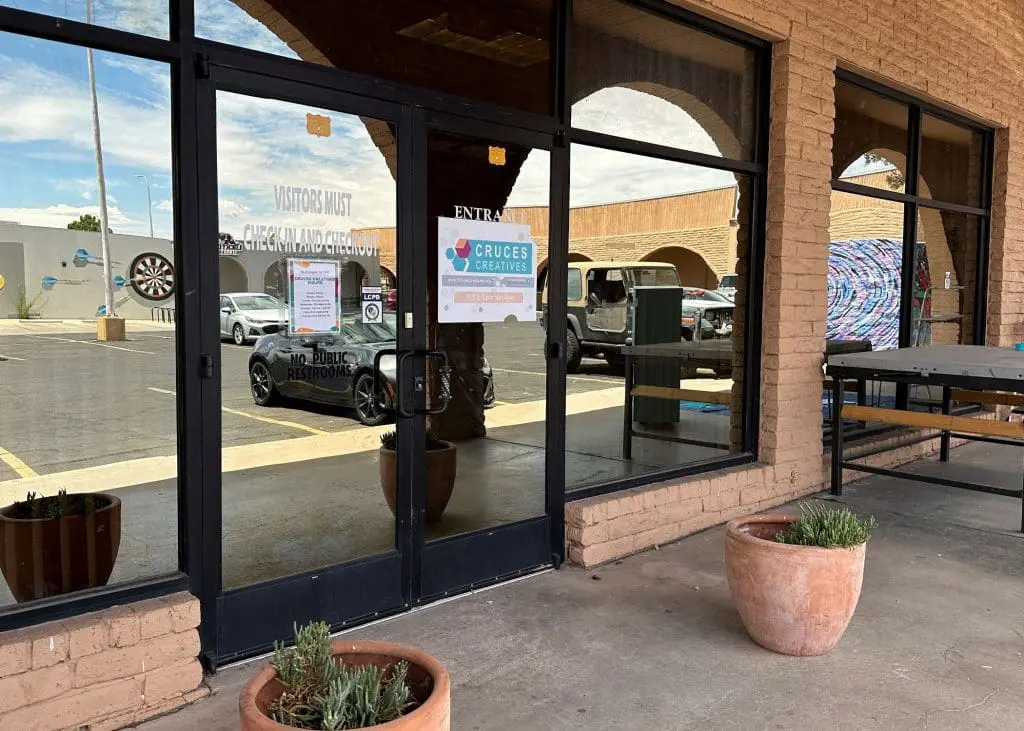
Project Summary
To address learning losses caused by the pandemic, Cruces Creatives will scale up two existing, evidence-based educational programs for K-12 students in Las Cruces, each of which focuses on project-based learning to improve academic, life, and well-being outcomes. CommunityShare Las Cruces, which connects teachers and students with subject matter experts from the community, makerspace tools, and mini-grant funding, enhancing education through project-based learning, specialized knowledge provided by community members, and mentorship. The STEAMM (Science, Technology, Engineering, Arts ,Mathematics, and Making) Team offers project-based educational programming in weekday, weekend, after-school, and summer camp formats, focusing on creative, hands-on projects that integrate STEM skills, art, and making. Through CommunityShare Las Cruces and the STEAMM Team, Cruces Creatives will serve at least 15,000 students and document the educational benefits that students gain.
Goals
Make up for learning losses suffered during the pandemic.
Milestones
By the end of the period of performance, Cruces Creatives will:
- Engage Las Cruces K-12 students (approximately 15,000 student interactions total) in at least one meaningful project with the support of a community partner in CommunityShare or through a STEAMM Team program by the end of the period of performance.
- Increase student engagement.
- Increase student understanding of course material.
- Increase student understanding of the real-world uses of course material.
- Increase educator job satisfaction.
- Increase educator perceptions of community support.
- Demonstrate student mastery of the Common Core standards embedded in STEAMM Program projects.
Outcomes
- Completed classroom projects
- Expanded tool access and usage for Las Cruces Public Schools through additional resources available at Cruces Creatives maker space
Rationale for the Project
All Las Cruces Public Schools are Title I schools that the Final Rule recognizes as being disproportionately impacted communities, whose students experienced academic setbacks and developmental delays due to the extreme disruptions caused by Covid-19. To help redress these adverse educational impacts, Cruces Creatives, whose existing educational programs specialize in community-engaged, project-based learning, will provide evidence-based educational services to address the academic, social, emotional and mental health needs of Las Cruces’s K-12 students. The central evidence-based mechanism that Cruces Creatives will employ in this work is project-based learning, which engages students through meaningful work, cultivates deep and transferrable content mastery, and gives students practice working with each other, teachers, and community members; cumulatively, research demonstrates that project-based learning is high effective approach for helping students develop academic skills, life skills, and well-being (Ames, 1992 Krajcik & Blumenfeld, 2006; Rajaratnam & Campbell, 2013).
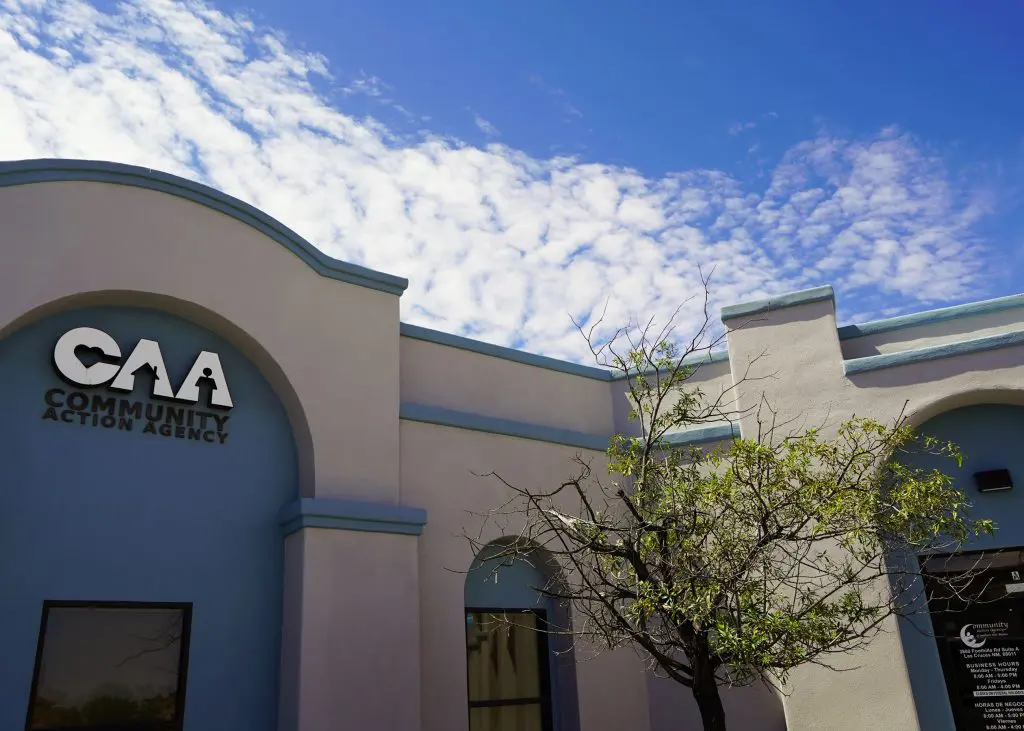
Project Summary
The Las Cruces Family Prosperity (LCFP) Demonstration Project aims to lift 150 Las Cruces families disproportionately affected by the pandemic out of poverty through direct cash assistance by providing recurring monthly payments of $500 for 18 months. Up to 200 additional Las Cruces families will receive a total of $550 for participating in data collection as a comparison group. Approximately $1,1460,000 of the request will go directly to about 450 homes, with an immediate economic impact on the local economy.
Goals
The goals of the Las Cruces Family Prosperity Demonstration Project are to determine if guarantee basic income has the potential to 1) lift Las Crucens out of poverty through direct cash assistance, also known as provision of guaranteed basic income, 2) positively impact households to include enhancing employment prospects, lowering debt, establishing savings, stabilizing housing security, and allowing for income-focused goals, 3) quantitatively monitor such child/family outcomes such as financial stress, anxiety, depression, child school attendance, family food security and others, and 4) solidy the demonstration effort and take other key external funders for expansion.
Milestones
Family’s Survey Objectives (Responses of Active group are evaluated against Comparison group):
Through monthly and bi-annual questionnaires, quantitively assess:
- Increase Financial resiliency by 5% after 18 months
- Reduce Financial stress by 5% after 18 months
- Examine how the monthly cash support is utilized
- Examine the local economic impact of cash support
- Examine changes in income (not counting the cash support)
- Examine changes in debt
- Examine changes in employment
- Examine changes in housing
- Examine changes in household composition
- Examine physical health
- Examine emotional health
- Examine psychological distress
Rationale for the Project
In Las Cruces, the poverty rate is over 26.4%. A more alarming statistic is that 38.3% of children under 18 live in poverty, and for those under five, the poverty rate is as high as 39.8% (U.S. Census, Las Cruces, NM Metro Area). Families already living in poverty and those who lost jobs or had hours reduced were impacted by COVID-19.
The loss of loved ones, already a tragedy, became a source of economic strain during the pandemic. Family members who had previously served as lifelines and support systems passed away or become so ill they could no longer be relied upon. Community resources quickly disappeared as the sheer demand for aid and assistance outpaced the capacity of serve providers. Even before the pandemic, 40% of Americans could not afford a $400 emergency. Research has shown that when people are given unrestricted cash payments, recipients can pull themselves out of poverty, plan for the future and create stability for themselves and their families (Economic Security Project, 2019). Guaranteed income gives recipients more freedom, dignity, and self-determination to choose for their financial well-being.
Outcomes
Decrease the number of families living in poverty (80% of Area Median Income) through ongoing or supplemental financial assistance and the freedom to proactively plan for a more financially stable future.

Project Summary
Catholic Charities of Southern New Mexico (CCSNM) COVID-19 Recovery Fund will provide direct financial assistance and access to healthcare and behavioral health treatment to the poor and less fortunate who have been negatively impacted by the coronavirus. Those Las Cruces individuals and families who meet program eligibility requirements will receive assistance for rent, mortgage, utility, food, and medical care, including mental health services and counseling. Using HUD income guidelines, the COVID-19 Recovery Fund will assist individuals and families living at or below the federal poverty line. Over three years, CCSNM proposes to distribute $233,333 in direct assistance to assist 500 individuals/families who have been and will be negatively affected by COVID-19.
Goals
Provide direct financial assistance to the poor and less fortunate who have been negatively impacted by the coronavirus. Provide medical care and mental health services for families that qualify for this initiative.
Milestones
CCSNM will measure outcomes quantitatively and qualitatively in particular:
- The number of clients saved from eviction.
- The number of individuals who received medical care.
- The number of clients who did not have their utilities shut off.
- The number of immigrants and migrant workers served.
- The number of COVID-19 bilingual public information sessions organized.
- The number of bilingual media messages (electronic and traditional) targeted at vulnerable populations increased community awareness of the benefits of vaccination.
- Individuals from under-represented communities will feel greater feeling of wellness and reduced stress.
Outcomes
500 individuals/families living in poverty experienced better health outcomes associated with increased financial support and access to healthcare and behavioral health treatment.
Rationale for the Project
The objectives of CCSNM’s COVID-19 Recovery Fund are to provide financial assistance to Las Crucens, currently impacted physically, financially, and emotionally by the coronavirus, and to educate the city’s most vulnerable communities about virus prevention and treatment. The target populations are the poor, immigrants, migrant workers, the homeless, and current and previous healthcare workers. Major program characteristics include 1.) direct assistance to those who need food, rent, utility, and medical assistance, including mental health services and counseling. 2.) public, bilingual education initiatives in partnership with local health care providers, including clinics and hospitals.
